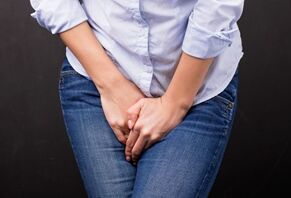这些迹象表明你的膀胱可能有问题
|
A constant need to pee is very common - but it's still a largely taboo subject. At least ten million Brits suffer and half are too embarrassed to see a doctor about it. A similar number feel ?uncomfortable even discussing it with partners, according to the charity Bladder Health UK. Here are some of the causes and treatments available.
1. Cause: Type 2 diabetes Three-quarters of people with diabetes experience excessive thirst and the need to wee more frequently. When there's excess glucose in the blood, the kidneys react by trying to flush it out by producing more urine. How to beat it: See your GP to get your blood glucose levels tested and a treatment plan. 2. Bladder infection Weeing frequently combined with a burning sensation can be a sign of a urinary tract infection, which happens when harmful bacteria enter the kidneys, ?bladder or urethra. Urine can also be cloudy or smell bad. How to beat it: See your GP for a urine test and then a course of antibiotics. 3. Weak pelvic floor Leaking when you cough, sneeze, laugh, jump or lift something heavy probably means you have stress incontinence. The effects of childbirth are well known, while older women are commonly affected by falling oestrogen levels which change the muscle tone. Weak pelvic floor can also affect men. How to beat it: Pelvic floor ?exercises. Locate your pelvic floor muscles by imagining ?trying to stop the flow of urine when you go to the toilet. Sit and squeeze the muscles ten times, breathing normally. 4. Medications Certain medications can trigger an overactive bladder - including diuretics, commonly taken for high blood pressure , and opioid painkillers. How to beat it: Speak to your GP about possible alternative medication. Exercises can help. 5. Too much tea or coffee Caffeine in tea and coffee is a diuretic, which triggers increased urination. Alcohol too. How to beat it: Try switching to decaffeinated varieties or ease up on the booze - and avoid taking in fluids for two hours before going to bed. |









